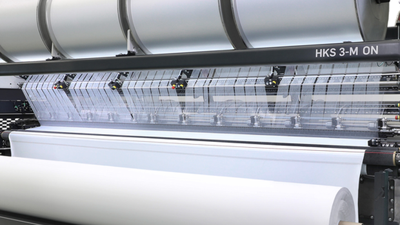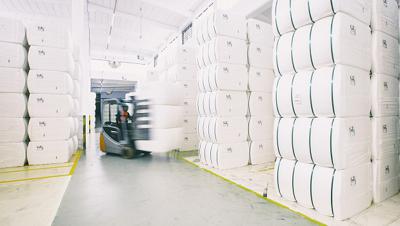
The cellulosic fibers of Lenzing are biodegradable in the ocean and revert to being part of the ecosystem at the end of their life cycle. Scientists at the research institute Scripps Institution of Oceanography (SIO) at the University of California, San Diego, CA/USA, confirmed back in 2021 that Lenzing Lyocell fibers completely biodegrade in sea-surface conditions in a remarkably short time. In a second study published in May 2023, the biodegradability of Lenzing Lyocell fibers, Lenzing Viscose fibers and Lenzing Modal fibers on the sea floor was also confirmed, providing definitive proof that they are an alternative to petroleum-based fibers. The assessments are the result of an independent project aimed at understanding end-of-life scenarios for textiles and nonwovens that are discarded as waste in the environment.
In its latest study, it compared the degradation processes of nonwovens made of petroleum and bio-based synthetic materials such as polyester and PLA, cellulosic materials such as cotton, and the Lenzing Group’s wood-based Lenzing Lyocell fibers, Lenzing Viscose fibers and Lenzing Modal fibers in specific scenarios. The materials were assessed in various real oceanic conditions and controlled aquaria conditions. While the wood-based cellulosic fibers fully biodegraded within 30 days, both in sea-surface and sea-floor conditions, the petroleum-based fibers tested were practically unchanged after more than 200 days.
The biodegradability of Lenzing Lyocell fibers, Lenzing Viscose fibers and Lenzing Modal fibers has been tested in a laboratory of Normec Organic Waste Systems (OWS), Utrecht/Netherlands. The latter confirmed the results in real oceanic conditions and controlled aquaria conditions. The assessment was conducted in accordance with the prevailing applicable international standards and reflects all the relevant natural and artificial environments in which biodegradation can occur. Certificates from the certification organization TÜV Austria show that Lenzing Lyocell fibers, Lenzing Viscose fibers and Lenzing Modal fibers rapidly biodegrade in all test environments (soil, industrial composting, home composting, fresh water and marine water) within the time periods set by the relevant standards.
EU plastic directive
Plastic pollution in the environment is a major problem. The use of petroleum-based synthetic fibers in textiles has approximately doubled in the last 20 years. This trend is likely to continue.
Consequently, Lenzing AG, Lenzing/Austria, also welcomes the EU’s targeted measures to combat plastic waste in general, such as those relating to the single-use plastic directive (EU) 2019/904. In its recently adopted guidelines for implementing the directive, the EU Commission precisely stipulates the products that fall under this category, which will provide the necessary clarity for EU member states in their joint campaign against environmental pollution from plastic waste.
Lenzing = trademark



